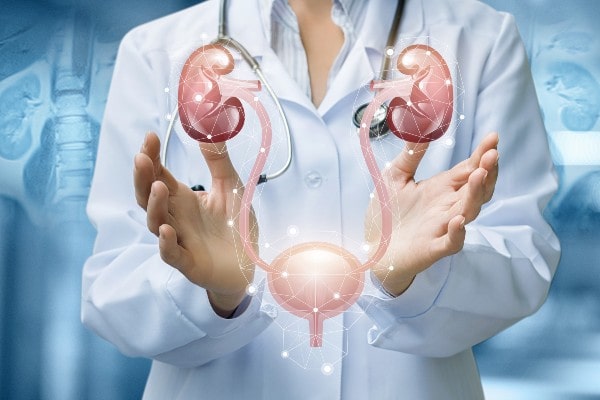Urologists are healthcare’s unsung heroes, treating a wide range of urinary tract and male reproductive system disorders. From basic problems to severe disorders, these professionals play an important role in diagnosing, treating, and managing a wide range of urological conditions. Let’s look at some of the problems that urologists regularly treat:
1. Kidney Stones: These pesky mineral deposits can cause excruciating pain and blockages in the urinary tract. Urologists employ a variety of techniques, including laser lithotripsy, to break down and remove stones, providing much-needed relief to patients.
2. Urinary Tract Infections (UTIs): UTIs are a common affliction, particularly among women. Urologists prescribe antibiotics and offer preventative strategies to manage and prevent
recurrent infections, ensuring optimal urinary health.
3. Prostate Conditions: From benign prostatic hyperplasia (BPH) to prostate cancer, urologists are experts in diagnosing and treating disorders of the prostate gland. They utilize a range of interventions, from medications to surgical procedures, tailored to each patient’s needs.
4. Erectile Dysfunction (ED): Urologists play a key role in addressing male sexual health issues, including ED. Through medications, lifestyle modifications, and advanced therapies such as penile implants, they help restore sexual function and improve quality of life.
5. Urinary Incontinence: Both men and women can experience urinary incontinence, a condition characterized by involuntary urine leakage. Urologists offer a comprehensive approach, including behavioral therapies, medications, and surgical interventions, to manage this condition effectively.
6. Bladder Disorders: Conditions such as interstitial cystitis, bladder cancer, and overactive bladder fall within the purview of urology. Urologists employ a multidisciplinary approach to diagnose and treat these disorders, focusing on symptom management and disease progression.
7. Infertility: Urologists work closely with reproductive endocrinologists to address male infertility issues, such as low sperm count or abnormal sperm function. Through advanced techniques like sperm retrieval and microsurgical procedures, they help couples achieve their dream of parenthood.
8. Testicular Conditions: Urologists diagnose and treat various conditions affecting the testicles, including testicular cancer, hydrocele, and varicocele. Timely intervention is crucial in managing these conditions and preserving fertility.
9. Pediatric Urology: Urologists specialize in treating urological disorders in children, ranging from congenital anomalies to urinary tract infections. Their expertise ensures optimal outcomes and long-term urinary health for pediatric patients.
10. Pelvic Floor Disorders: Urologists address pelvic floor disorders such as pelvic organ prolapse and fecal incontinence through a combination of conservative therapies and surgical interventions, enhancing patients’ quality of life.
In conclusion, urologists are vital in the area of medicine, providing expertise in diagnosing, treating, and managing a wide range of urologic disorders. Their commitment to patient care and new ideas continue to have a significant influence on urinary and reproductive health globally.






Comments